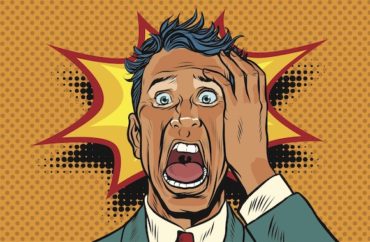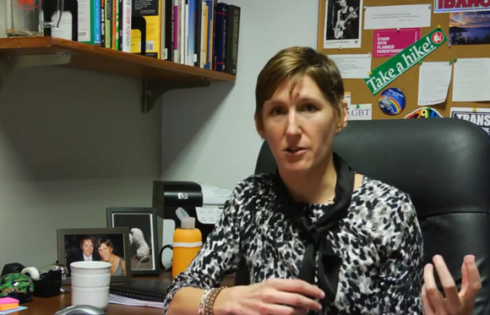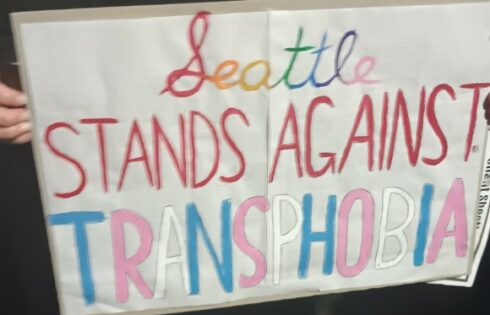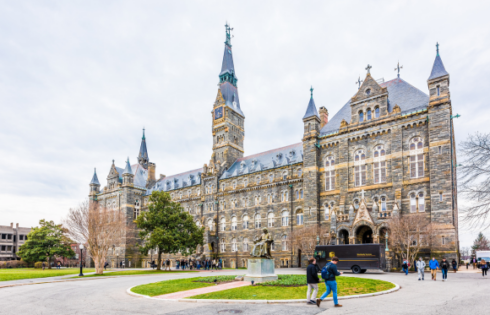
Why you shouldn’t listen only to public health experts
After a couple of weeks in late February of water-cooler talk about the coronavirus threat, what had up until then been a distant gossip topic became a reality for my Midwestern hospital system. In the span of a few weeks, hospital operations went from business-as-usual to disaster mode. Non-essential staff were furloughed or had their hours cut. All elective surgeries (which happen to be the bread-and-butter of hospitals and their employees) were banned. Hospitals sealed off all but two entrances, the main entrance and the emergency department entrance.
Yet this didn’t translate to an influx of COVID-19 patients. While hospitals in New York and other densely populated urban areas have seen their patient volumes skyrocket, the amount of general treatments in my hospital system has plunged. Patients here are staying home. They’re heeding the advice of state and federal leaders and/or have been terrified by the media coverage around the pandemic.
There are parts of the country that are under dire stress from the outbreak. Yet the COVID-19 nightmare has been much more of an economic struggle for my community than a disaster-movie medical catastrophe. At the hospital, anyone who isn’t providing direct patient care, who isn’t closely facilitating patient care or who isn’t involved in critical supply chain procurement is expendable. People are scared for their jobs. I’m scared for my job.
I’m fortunate that my organization is trying its best to mitigate financial hardships for its employees and has taken generous steps to minimize the economic impact of COVID-19. However, its compassion is inevitably limited by the cold reality of the bottom line. Our revenue stream has gone dry in a time when government regulations had already caused hospital reimbursement to plummet.
Environmental service team members, physical therapists, certified nursing aides, nutritional service workers, per diem employees and other “non-essential” team members might not be vulnerable to COVID-19, but thanks to the pandemic and the policies targeting it, these healthcare workers are now potentially vulnerable to hunger and bankruptcy.
What is a public health expert? (And why they’re not omniscient)
I’m an economics graduate student and a hospital administration professional. These two facets of my identity have shaped my perception of the COVID-19 outbreak. I started my career in hospital administration in 2013 and worked primarily in hospital operations for five years. I managed inpatient hospital departments and outpatient facilities before switching to hospital performance improvement, which draws on principles of industrial engineering and organizational development to optimize operational processes and improve efficiency within healthcare systems. My work centers around removing waste in processes to reduce cost and optimize value for the patient.
However, I should clearly state that a hospital administration professional is NOT a public health expert. I am not a public health professional. A public health professional is an academic or government official that communicates information about public health and best practices to nonscientific individuals, i.e., “the public.” This is a critical role that is vital to modern societies, even in times of prosperity, not just in crises like we currently find ourselves in.
Many public health experts, such as Dr. Anthony Fauci, one of the members of the White House Coronavirus Task Force, have expertise in medicine, nursing and other healthcare professions. However, while public health experts’ input is invaluable, their domain of expertise is limited to public health and whatever clinical specialty they happen to be trained in.
Public health experts are not experts in healthcare delivery systems. They are not experts in supply chains or logistics. And most importantly, they are not experts in any economic matters. In fact, many of them seem to bristle when economic tradeoffs are discussed in response to their policy recommendations.
Our media have apparently decided to place all their trust in these public health experts. However, as both a hospital administration professional and a student of economics, I have concerns about handing complete control over to “the experts” due to the constrained nature of their expertise. Let me explain why.
Unmitigated, the authority of ‘experts’ can become a tyranny
When someone completes a PhD, they must focus on an extremely narrow subject. Imagine a conceptual pie with all the knowledge in the world. The PhD becomes an expert in a microscopic sliver of that pie. He is extremely familiar with the subjects directly adjacent to that microscopic sliver, but the farther away a subject is from that sliver, the less useful his expertise becomes when dealing with another subject. A volcanologist knows very little about virology just as a virologist knows very little about volcanoes. You probably wouldn’t want an economist to take your appendix out.
Yet our media and many politicians seem eager to hand over control of the economy to physicians and public health experts. This is the same media that obsesses over diversity of race, gender, sexuality and every other potential facet of a person’s identity but which is apparently averse to the diversity of expertise in times like these.
There is a reason that the President of the United States has myriad experts to advise him. By employing such a robust panel of experts for counsel, the president has approximate access to the full knowledge pie. But, even in a time of medical crisis, he needs more than just medical advisors on his team.
Externalities matter
Counterproductive externalities often occur when a team of “experts” get together and create short-sighted policy. Unfortunately, moments of crisis when solutions need to be developed in a very short time frequently lead to short-sighted policy because the pressure “to act” can mean the difference between political victory or political death for politicians and other public servants.
Whenever policymakers oversimplify the world and fail to consider all relevant variables, there will be externalities to policy. Whether or not those externalities are harmful and what magnitude of harm results from them is determined by how many variables are omitted from consideration.
Trade-offs are what economics is about. The desire for instant gratification (from the policy-makers’ perspective) often entails the demonization of the consideration of trade-offs. A well-intentioned welfare policy could provide an incentive for recipients to not work, which could lead to a negative externality (people preferring to be subsidized by the state instead of entering the workforce). The policy is intended to be a temporary safety net for people searching for work. However, if the welfare payment is too high, it will incentivize people to not work, which defeats the policy’s aim.
Likewise, a draconian tax rate might bring in less tax revenue for the government than a modest tax rate. Tax rates that are higher than optimal force investors to shift to tax-exempt securities and to move their money to tax-shield havens like the Cayman Islands. If the goal of the policy is to increase government revenue, this trade-off must be considered. Failure to do so will mean that less tax revenue is collected, which defeats the entire purpose of the policy.
Any policy that fails to consider relevant trade-offs, in other words, is generally bad policy. And I fear that the some public health experts and media personalities are refusing to consider the tradeoffs of this situation and instead prefer to only consider the raw mortality rate of COVID-19 when appraising the value of policy options.
New York Governor Andrew Cuomo exemplified this brand of stunning one-mindedness when he said last week: “I want to be able to say to the people of New York — I did everything we could do… And if everything we do saves just one life, I’ll be happy.”
If we take Cuomo at his word, there is no trade-off resulting from his COVID-19 policy worthy of consideration if at least one human life is at stake. I absolutely agree that human life is more important than money. However, people confuse the consideration of economic trade-offs with Wall Street greed. The two are not synonymous.
If (hypothetically) five Americans become homeless for every one life that is saved as a result of our COVID-19 policy, it is a valid question to ask: In the long-term, how many people will die due to COVID-19 circumstances linked to joblessness, homelessness, depression, bankruptcy, etc.? It is not a greedy person that asks such questions. It is a rational and compassionate one.
These shutdowns cannot continue without grave consequences possibly more serious than the disease itself; when economies crash, countless people suffer and many die. In this case, a ruined American economy might end up being worse for the country than the pandemic which inspired it.
MORE: Public health profs call for mass coronavirus testing to get out of lockdown
MORE: Multiple experts criticize the hysterical reaction to COVID-19
IMAGE: studiostoks / Shutterstock.com
Like The College Fix on Facebook / Follow us on Twitter






Please join the conversation about our stories on Facebook, Twitter, Instagram, Reddit, MeWe, Rumble, Gab, Minds and Gettr.